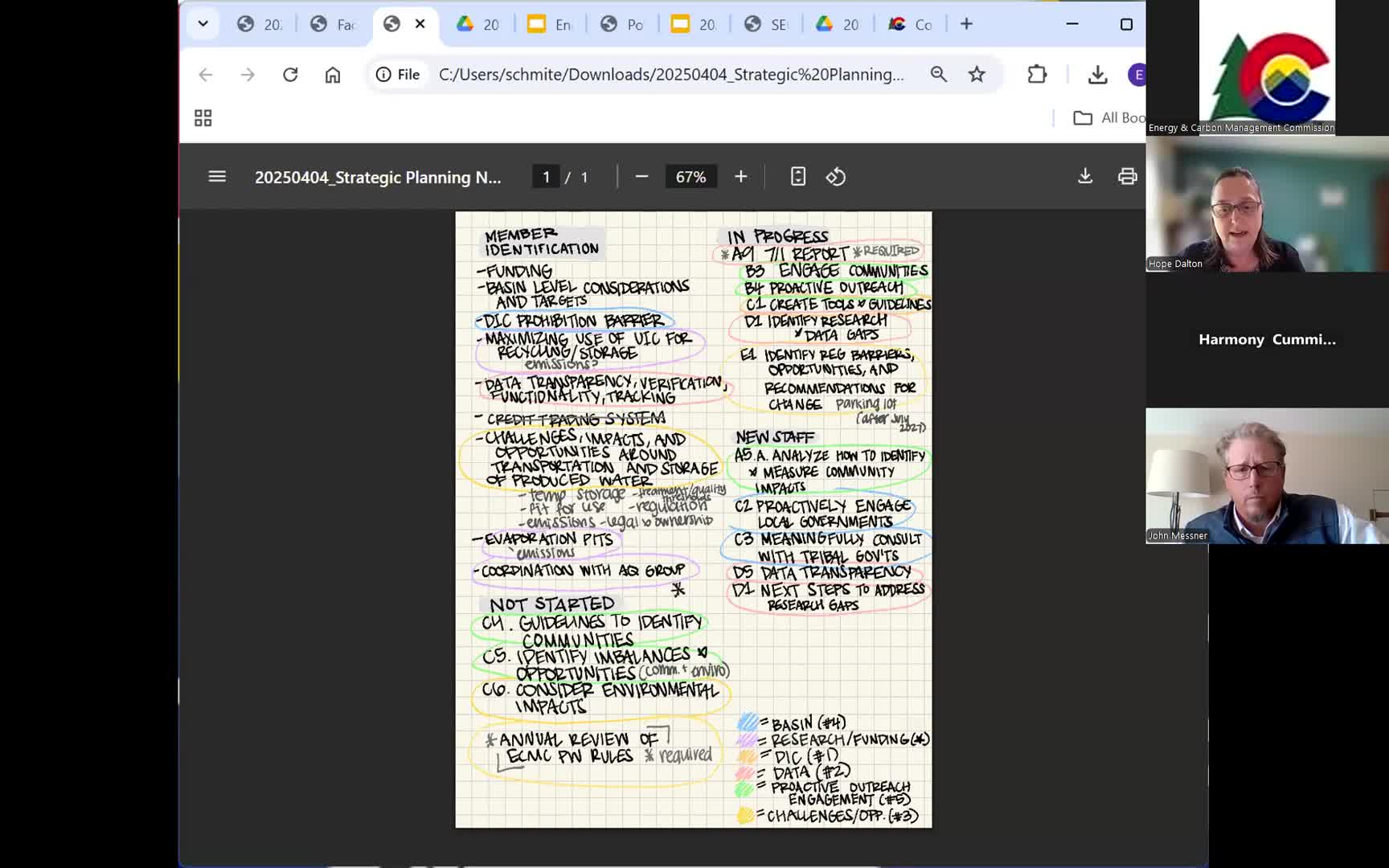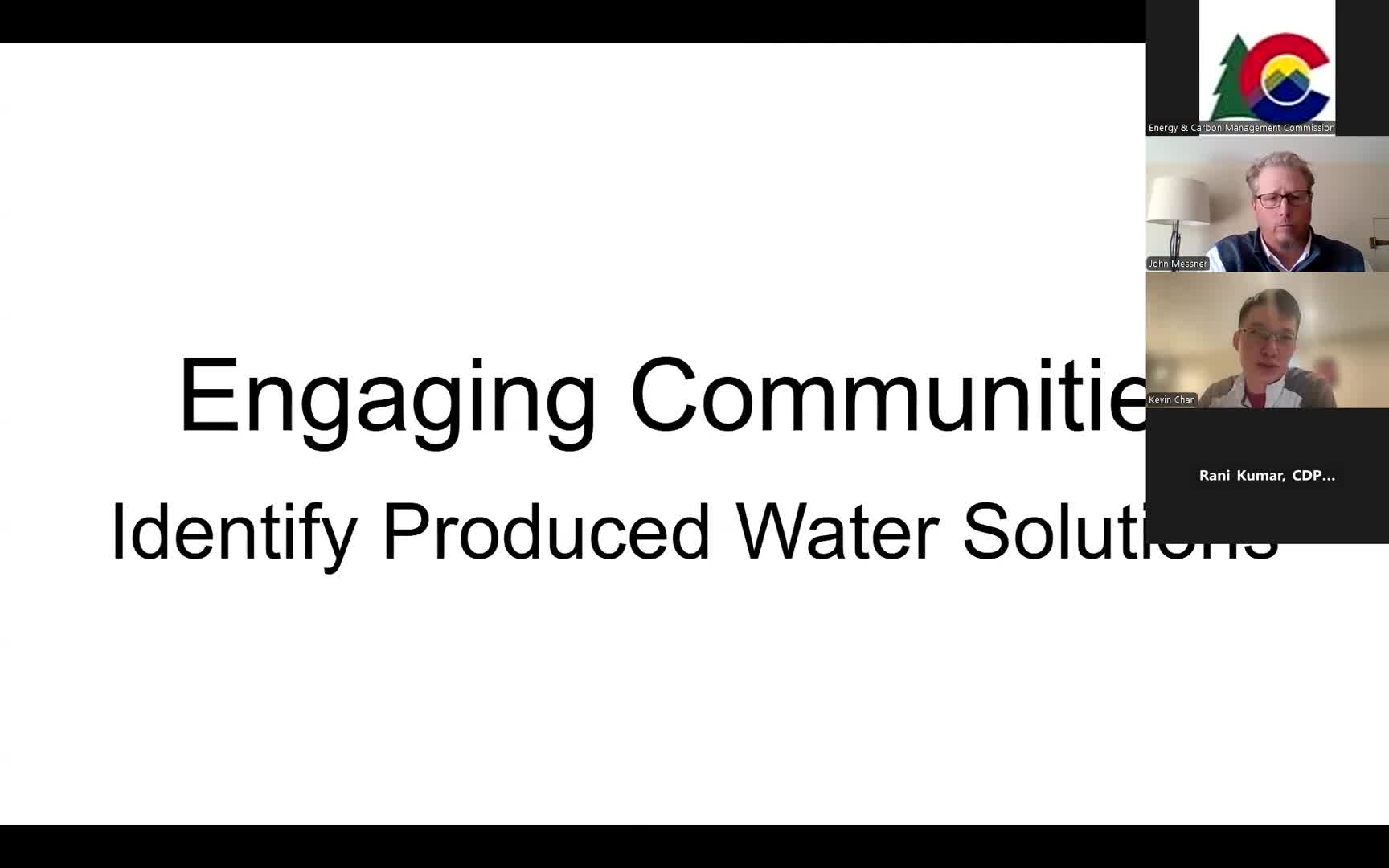Article not found
This article is no longer available. But don't worry—we've gathered other articles that discuss the same topic.

Produced Water Consortium sets priorities, timelines and coordinates with ECMC on emissions work group; deliverable due July 1

Industry technical briefing: pilots show distillation, pipelines and monitoring all needed for scaled reuse

Adams County outlines land‑use, setback, testing and bonding requirements for produced‑water facilities

Consortium member: involve communities early, use local monitoring and share benefits for produced‑water projects

